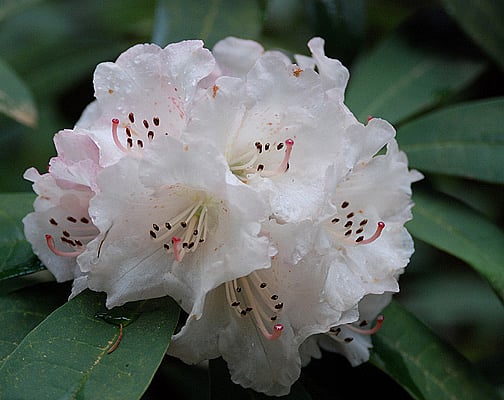The Indian Institute of Technology (IIT) Mandi has identified phytochemicals in the petals of a Himalayan plant that could potentially be used to treat Covid-19 infections.
Besides regular vaccination against Covid, there is a worldwide search for non-vaccine medicines that can prevent viral invasion of the human body."Among the different types of therapeutic agents being studied, phytochemicals -- chemicals derived from plants -- are considered particularly promising because of their synergistic activity and natural source with fewer toxicity issues," said Dr. Shyam Kumar Masakapalli, Associate Professor, BioX Centre, School of Basic Science, IIT Mandi, in a statement.
The team found petals of the Himalayan Buransh plant, scientifically called Rhododendron arboreum, are consumed in various forms by the local population for its varied health benefits. Thus, scientists from IIT Mandi together with those from the International Centre for Genetic Engineering and Biotechnology (ICGEB), New Delhi, set out to scientifically test the extracts containing various phytochemicals in it, with a particular focus on antiviral activity.
The researchers extracted the phytochemicals from the Buransh petals and performed biochemical assays and computational simulation studies to understand its antiviral properties."We have profiled and investigated the phytochemicals of Rhododendron arboreum petals sourced from Himalayan flora and have found it to be a promising candidate against the Covid virus," said Dr. Ranjan Nanda, from Translational Health Group at ICGEB.
The findings have been recently published in the journal, Biomolecular Structure, and Dynamics. Hot water extracts from the Buransh petals were found to be rich in quinic acid and its derivatives. Molecular dynamics studies showed that these phytochemicals have two kinds of effects against the virus. They are bound to the main protease -- an enzyme that plays an important role in viral replication -- and to the Human Angiotensin-Converting Enzyme-2 (ACE2) that mediates viral entry into the host cells.
The researchers also showed through experimental assays that non-toxic doses of the petal extracts can inhibit Covid infection in Vero E6 cells (cells derived from the kidney of an African green monkey that is commonly used to study infectivity of virus and bacteria), without any adverse effects on the cells themselves. The findings support the urgent need for further scientific studies aimed at finding specific bioactive drug candidates from R. arboreum, in vivo and clinical trials against Covid-19. The research team also plans to carry out additional studies to understand the precise mechanism of inhibition of Covid-19 replication by specific phytochemicals from Buransh petals.









